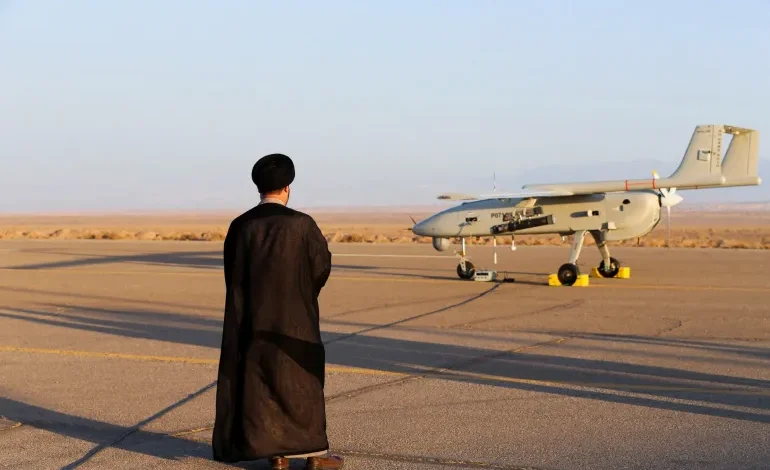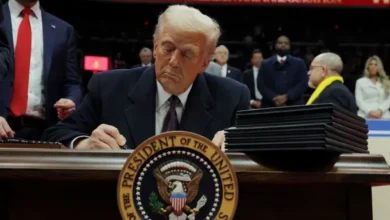Iran dismisses European restraint calls as contradicting international law

Iran has dismissed calls by France, Germany and the United Kingdom to stand down its threat against Israel after the assassination of Hamas’s political leader Ismail Haniyeh in Tehran last month.
Nasser Kanaani, the spokesman of Iran’s Ministry of Foreign Affairs, said in a statement on Tuesday that the request “lacks political logic and contradict principles of international law” and also “constitutes public and practical support” for Israel.
The European countries “raised no objection to the international crimes” of Israel and “impudently asked Iran not to respond to a violation of its sovereignty and territorial integrity”, he said.
Kanaani said Iran was determined to deter Israel and called on the three countries to “once and for all stand up against the war in Gaza and the warmongering of Israel”.
Hamas has blamed Israel for the July 31 assassination of Haniyeh in Tehran, where he was attending the inauguration of Iranian President Masoud Pezeshkian.
The Israeli government has made no claim of responsibility.
The attack on Haniyeh, in which his bodyguard was also killed, came after Hezbollah senior commander Fuad Shukr was killed in an Israeli attack in Beirut, ratcheting tensions in the region amid Israel’s war on Gaza that has killed nearly 40,000 people.
“The inaction of the United Nations Security Council and the extensive political and military support of Western governments to the Zionist regime [Israel] are the main factors behind the regional expansion of the Gaza crisis,” Kanaani said.
On Monday, French President Emmanuel Macron, German Chancellor Olaf Scholz and British Prime Minister Keir Starmer issued a joint statement calling for de-escalation.
“We call on Iran and its allies to refrain from attacks that would further escalate regional tensions and jeopardise the opportunity to agree a ceasefire [in Gaza] and the release of [Israeli] hostages,” it said.
Scholz and Starmer also held separate phone calls with Pezeshkian on Monday, their governments said.
Starmer asked Pezeshkian to refrain from attacking Israel, saying that war was not in anyone’s interest, the prime minister’s office said.
Scholz appealed to Pezeshkian “to do everything possible to prevent a further military escalation”, expressed “great concern about the danger of a regional conflagration in the Middle East” and said “the spiral of violence in the Middle East must be broken now”, his spokesperson said in a statement.









